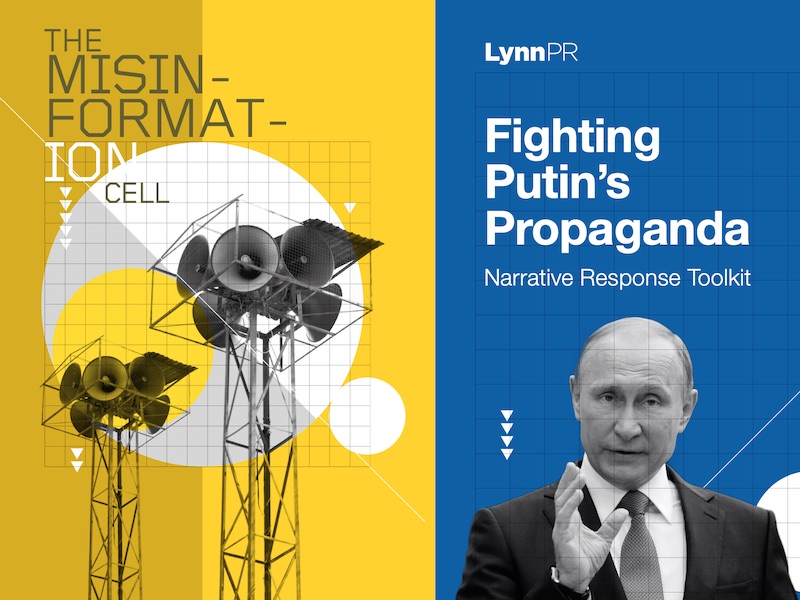Maja Pawinska Sims 06 Mar 2022 // 3:23PM GMT

LONDON — Lynn PR has created a toolkit to help communicators and others support Ukraine by countering dominant Russian propaganda.
The Propaganda Narrative Response Toolkit has been developed by the agency’s Misinformation Cell, which was set up last year to help PR, communications and marketing teams manage the growing threat of misinformation, based on data, behavioural science and storytelling.
The toolkit identifies key areas of disinformation being used by the Russian government, via monitoring of official and unofficial channels, and the propaganda narratives associated with them, then pinpoints the vulnerabilities in those narratives and suggests counter narratives and content recommendations. These recommendations will evolve as Russia’s narratives around Ukraine change.
Lynn PR’s Misinformation Cell is led by Stefan Rollnick, a former digital misinformation specialist for the Welsh government, who said: “Ukraine is already winning the information war with agility and creativity and there are journalists across the world working tirelessly and effectively to debunk disinformation. We do not seek to replace this ecosystem. Instead, our toolkit provides communicators in the PR and communications industry, public sector, civil society and beyond with a one-stop-shop for narrative guidance and content recommendations.
“We hope our insights are also useful to journalists, editors, producers, policymakers, NGO and business leaders who play big roles in the information ecosystem. Our recommendations are not comprehensive – nothing is – but we hope it can add to our collective armoury.”
He added: “In seeking to pollute the information space with bad information, contradictory information and downright lies, Putin is blurring the lines of reality and making it harder for Ukraine to defend itself.
“Through a coordinated response we can arm the communications community and civil society with the information they need to fight back. The strategy looks at disinformation not through the lens of facts vs lies, but as competing narratives. We fight stories that are built on deliberate distortions of reality with a better story: we build our counter-narratives on hope and truth.”
He also called on the communications industry to assist in “crowd-sourcing intelligence” on the spread of disinformation, and to use and disseminate the counter-narratives. “I’m willing to partner with anyone who is committed to this fight. Dark times call for us to put divisions aside and fight together for the common good,” he said.



































.jpg)

















